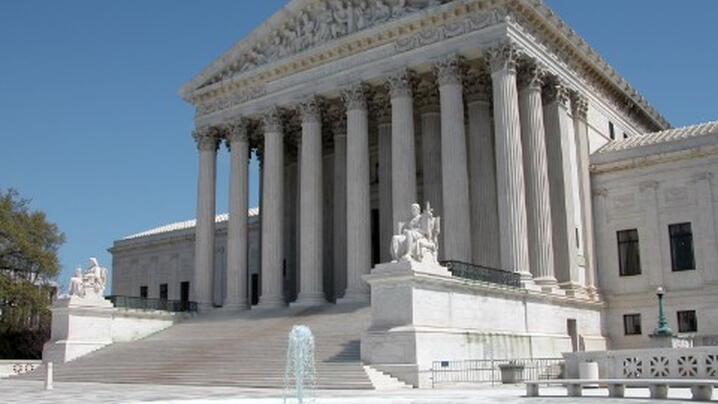
by Lisa Soronen, executive director, State, and Local Legal Center
Herrera v. Wyoming is a case of dueling Supreme Court precedent.
Clayvin Herrera, a member of the Crow tribe, shot an elk in Big Horn National Forest in Wyoming. He was charged with hunting without a license during a closed season. Herrera claims that an 1868 treaty giving the Crow the right to hunt on the “unoccupied lands of the United States” allowed him to hunt on this land.
In Herrera v. Wyoming the Supreme Court will decide whether Wyoming's admission to the Union or the establishment of the Big Horn National Forest abrogated the Crow’s treaty right to hunt in Big Horn National Forest.
To decide this case, the lower court applied a 1995 Tenth Circuit decision Crow Tribe of Indians v. Repsis, which raised the same question. In Repsis, the Tenth Circuit held that the “Tribe’s right to hunt. . . was repealed by the act admitting Wyoming into the Union” and that “the creation of the Big Horn National Forest resulted in the ‘occupation’ of the land.” The Tenth Circuit in Repsis relied on an 1896 Supreme Court case Ward v. Race Horse, involving off-reservation hunting rights and decided against a tribe. Four years after Repsis, the Supreme Court decided another off-reservation hunting rights case, Minnesota v. Mille Lacs Band of Chippewa Indians, in favor of a tribe. At issue in this case is whether Mille Lacs overruled Race Horse and Repsis.
According to Herrara, Mille Lacs indicates Repsis was decided incorrectly. Herrara argues: “Repsis unambiguously held that ‘[t]he Tribe’s right to hunt reserved in the [1868 Treaty] was repealed by the act admitting Wyoming into the Union.’ Indeed, for good measure, it declared Race Horse ‘compelling, well-reasoned, and persuasive,’ and it cited Race Horse for the proposition that the hunting right preserved in the 1868 Treaty was a ‘temporary right’ that was ‘repealed with Wyoming’s admission into the Union.’ Mille Lacs rejects that reasoning across the board, from the notion that statehood abrogates treaty hunting rights to the ‘too broad’ construct of ‘temporary’ rights.”
Herrara also argues that the establishment of the Big Horn National Forest did not abrogate the Crow’s treaty rights. Indian treaties are interpreted as the Indians would have understood them. The Crow Tribe understood “unoccupied lands of the United States” in the 1868 Treaty to mean “land undeveloped by white settlers.” In short, prohibiting “entry or settlement” on land by creating a national forest does not cause that land to become “occupied.”
Wyoming argues that Herrara’s interpretation of Mille Lacs is too broad. According to Wyoming, “Mille Lacs expressly validated the alternative holding of Race Horse that Congress did not intend the language ‘the right to hunt on the unoccupied lands of the United States’ to survive Wyoming’s statehood.”
This case has implication beyond the Crow treaty because a number of other treaties agreed to before states joined the Union also allow tribal members to engage in subsistence hunting on the “unoccupied lands of the United States.”
Related Resources
Supreme Court Accepts Significant Oklahoma Indian Reservation Case. This blog post from 2018 looks at another case that the Supreme Court has to decide involving Native American treaty rights.
Promoting Tribal and Community Cooperation. In a 2017 Public Management (PM) magazine article, the focus was on how local governments in the United States and Canada can work better with their tribal counterparts.
Let’s Talk About Community Heart & Soul. This article from 2016 explores how local governments can be better at including residents in the community planning process. One example comes from Cortez, Colorado, where the local government sought out local tribal members to make sure their input was included in a beautification project.
New, Reduced Membership Dues
A new, reduced dues rate is available for CAOs/ACAOs, along with additional discounts for those in smaller communities, has been implemented. Learn more and be sure to join or renew today!
